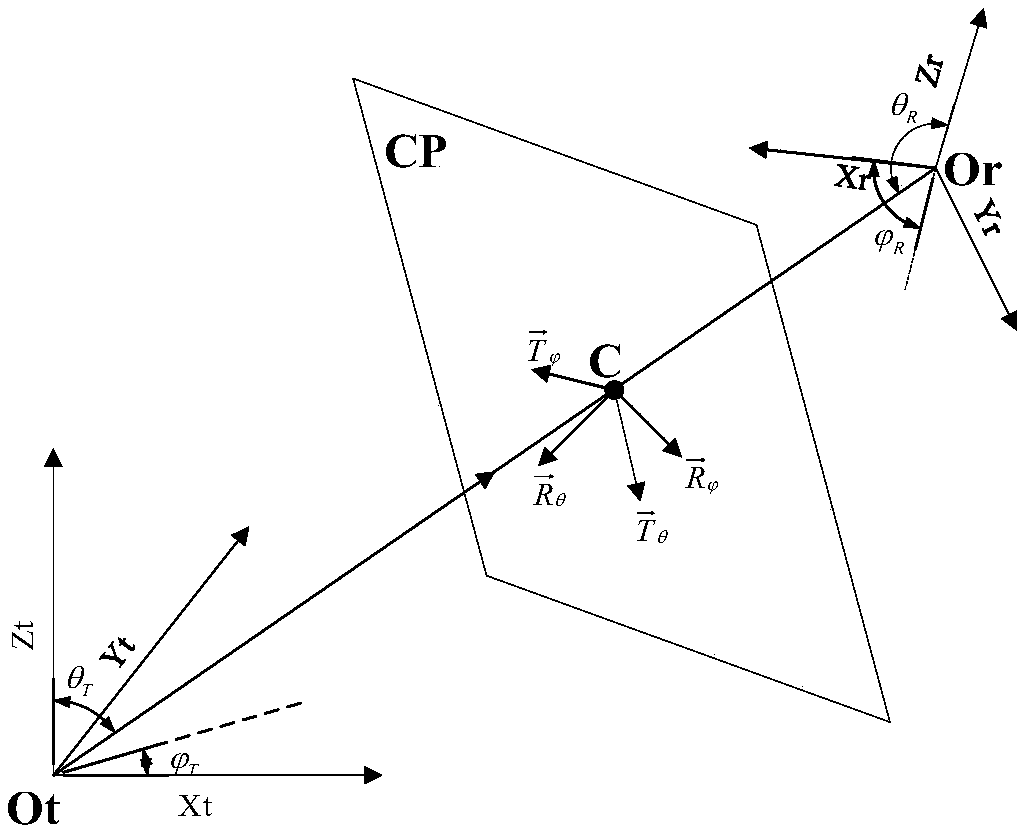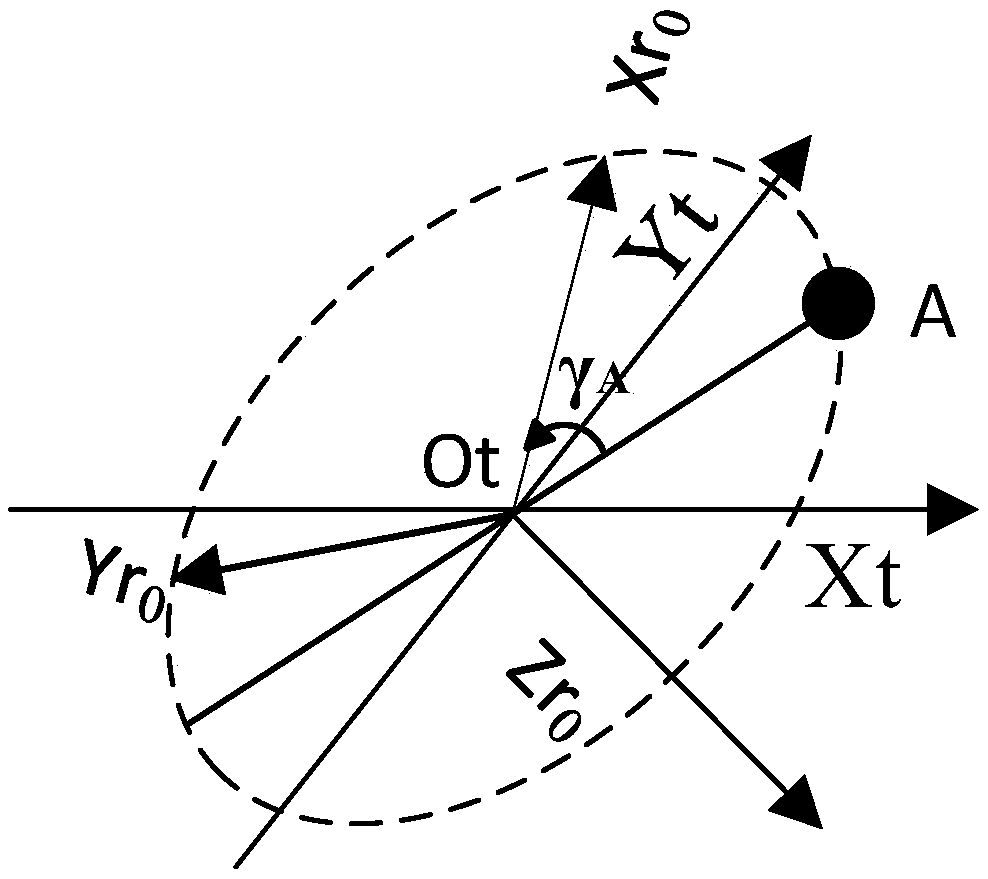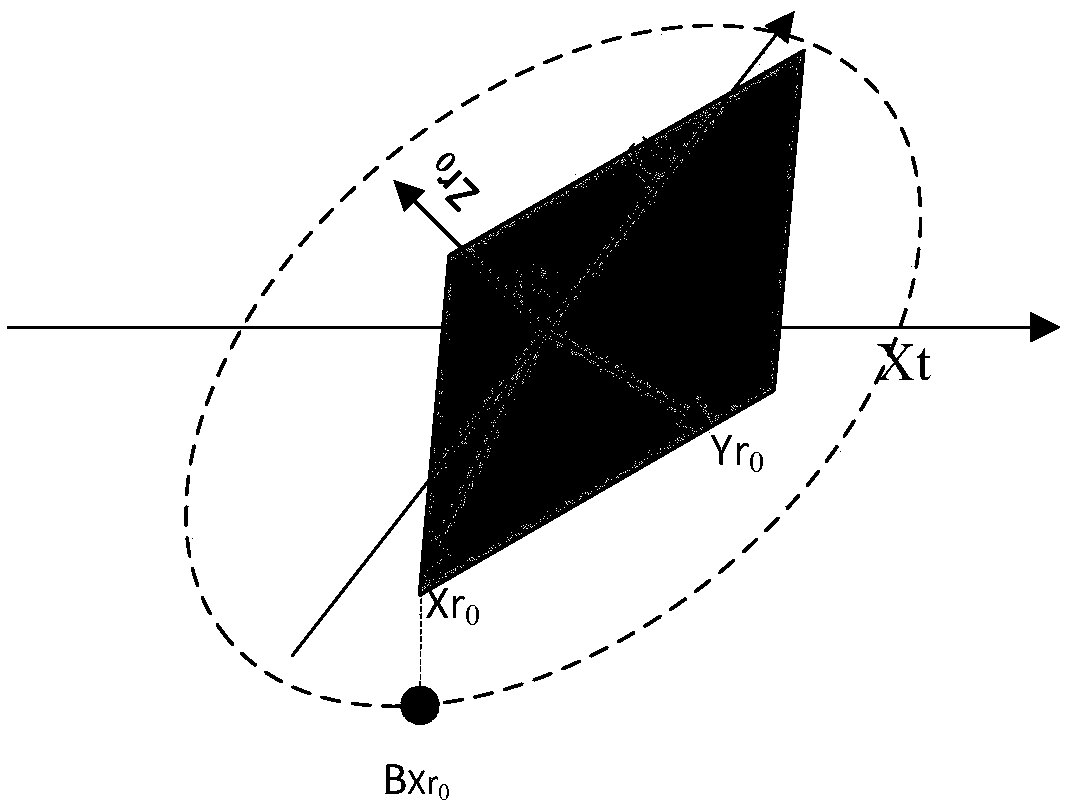Optimization method for antenna transceiver including polarization parameters
A technology for transmitting and receiving devices and polarization parameters, which is applied to antennas, antenna arrays, and electrical digital data processing, and can solve the problems of single transceiver antenna, phase difference between two polarization components, lack of calculation and optimization methods, etc.
- Summary
- Abstract
- Description
- Claims
- Application Information
AI Technical Summary
Problems solved by technology
Method used
Image
Examples
Embodiment 1
[0159] Calculate the transmission loss of 28GHz transceiver and two spatial relationships: 1. The two double-ridged horn antennas have a certain height difference. 2. The height of the two double-ridged horn antennas is the same.
[0160] From Figure 6 and Figure 7 It can be seen that the calculated value of the transmission loss considering dual polarization is larger than that of the traditional one without considering polarization, which is a common phenomenon. That is to say, if the case of dual polarization is not considered, the estimation of the transmission loss is relatively small.
Embodiment 2
[0162] Combined with the differential genetic algorithm, the maximum value of (28) and the antenna space phase position parameter corresponding to the maximum value can be obtained. The iterative result of a typical differential genetic algorithm is as follows: Figure 8 As shown, the calculation results without considering the polarization are used as reference values for normalization.
PUM
 Login to View More
Login to View More Abstract
Description
Claims
Application Information
 Login to View More
Login to View More - R&D
- Intellectual Property
- Life Sciences
- Materials
- Tech Scout
- Unparalleled Data Quality
- Higher Quality Content
- 60% Fewer Hallucinations
Browse by: Latest US Patents, China's latest patents, Technical Efficacy Thesaurus, Application Domain, Technology Topic, Popular Technical Reports.
© 2025 PatSnap. All rights reserved.Legal|Privacy policy|Modern Slavery Act Transparency Statement|Sitemap|About US| Contact US: help@patsnap.com



